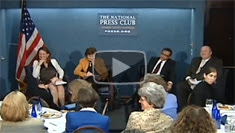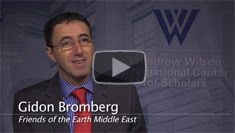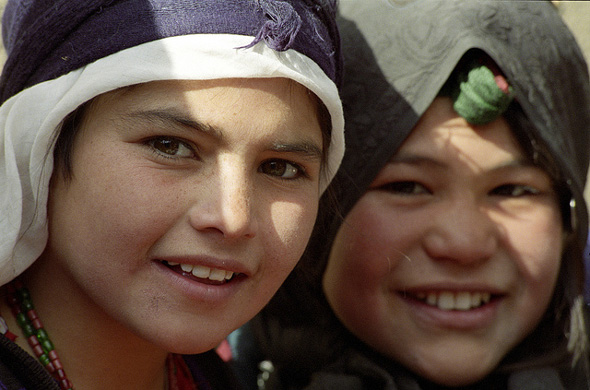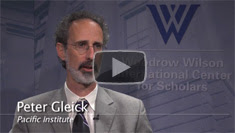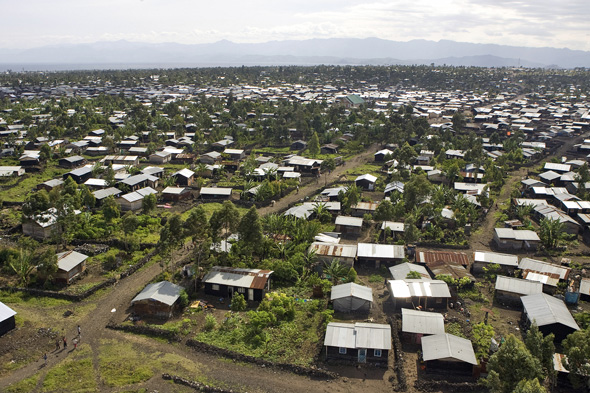Showing posts from category environment.
-
Day of 7 Billion Puts Future Generations in Spotlight
›This month, our small planet’s population will hit seven billion. Reproductive health and environmental groups worldwide are raising awareness about the exact day – the “Day of Seven Billion” – when we’re estimated to hit that number next week, calling for sustainability and women’s empowerment. But the future trajectory of the world’s population projections – and all that they entail for human and environmental wellbeing – depends on decisions we make now.
Let’s start with the more than 215 million women worldwide – including many in our home countries, the United States and Kenya – who do not want to get pregnant but are not using modern contraception. Our world looks very different in 2050 if these women’s needs are met.
Research from the Futures Group shows that meeting women’s needs results in a significantly slowed population trajectory, with world population topping out at eight billion in 2050. According to recently revised UN estimates, without this intervention population could rise to 10 or even 12 billion by century’s end. Meeting this need is also a smart investment: Our research estimates that access to modern contraception for all who want it would cost $3.7 billion per year. Others have estimated the savings in health care costs of providing contraception to all who want it at $5.1 billion per year. Family planning is cost-effective; it has been estimated that a dollar spent on family planning can save between $15 and $20 in education, health, housing, and other socio-economic support costs, making the achievement of the Millennium Development Goals cheaper for developing countries.
The health and environmental benefits are also enormous: a one-third reduction in maternal mortality; a one-fifth reduction in child mortality; a major reduction in the greenhouse gas emissions. Recent research shows that carbon emissions slow when we slow our population trajectory in an effect similar to increasing the world’s use of wind power forty-fold. In Nigeria it was recently estimated that providing universal access to family planning would result in a reduction of carbon emissions equivalent to eight years from current sources.
These investments also provide more than big numbers: By enabling couples and women to choose when and how many children they’ll have, women can continue their educations longer, participate more in the workforce, and contribute to household decisions that benefit the family.
Giving women what they want and need to plan their pregnancies is one of the most obvious, yet most overlooked solutions to many of the most pressing problems we face, from maternal and child mortality to climate change. International family planning funding has stagnated for over 10 years and the results have been predictable: In Kenya, and in many countries, unmet need – with all its human costs – has increased.
Today, the largest generation of young people ever is coming of age. The aspirations and health of the millennial generation – as well as all those in the future – are on the line.
Pamela Onduso, MPH, is a Kenyan reproductive health advocate and program adviser with Pathfinder International’s Kenya office based in Nairobi. Dr. Scott Moreland is a senior researcher at the Futures Group, and leads demographic work in countries around the world.
Sources: African Institute for Development Policy, Futures Group, Guttmacher Institute, Health Policy Initiative, PNAS, Population Services International, UN Population Division, World Health Organization.
Photo Credit: Adapted from “Tea picker and son,” courtesy of flickr user ROSS HONG KONG. -
Laurie Mazur, The Aspen Leaf
The Planet at 7 Billion: Lessons from Somalia
›October 28, 2011 // By Wilson Center Staff The original version of this article, by Laurie Mazur, appeared on the Aspen Institute’s Aspen Leaf blog.
The original version of this article, by Laurie Mazur, appeared on the Aspen Institute’s Aspen Leaf blog.
Listless, emaciated children wait for water to arrive by donkey. Their mothers rest nearby, too exhausted to speak. Tiny graves are chiseled out of bone-dry earth to hold the famine’s youngest victims. That is what Mary Robinson, then-president of Ireland, found when she visited Somalia 19 years ago. Images of suffering haunted her for years: “I never got Somalia out of my system,” she said.
Now, the Horn of Africa is again in the grip of famine. When Robinson returned to Somalia earlier this year, “Everything was even worse” than in 1992. At the National Press Club on Monday, October 17, Robinson issued an eloquent plea to address the crisis in Somalia, which has already claimed 40,000 lives. “How can we allow that to happen in the 21st century?” she asked. “It’s a black mark for all of us.” The event was part of a series of discussions organized by the Institute’s Aspen Global Health and Development program, titled “7 Billion: Conversations that Matter.”
Women, Reproductive Health, and Fertility.
It is not enough to respond to the current crisis, Robinson said. To prevent a recurrence, we must also address long-term health and development challenges. That means bolstering governance and security. And, perhaps most important, it means unleashing the power of women. Women are critical to the future of Somalia, said fellow speaker Walid Abdelkarim, principal officer and team leader for Somalia at the UN Department of Peacekeeping Operations. “The most important element is the ability of the household to grow,” he said, “and that’s about the woman who nourishes and runs the household.”
Continue reading on The Aspen Leaf.
Video Credit: Aspen Institute. -
Watch: Gidon Bromberg Gives an Update on Jordan River Rehabilitation Efforts
›October 27, 2011 // By Kate Diamond Gidon Bromberg, co-director of Friends of the Earth Middle East (FOEME), says in this short interview with ECSP that his outlook on rehabilitating the Jordan River has changed completely over the last five years. We had been “laughed at” for trying to restore the waterway, he said; now though, “we are very confident that the Jordan River south of the Galilee down to the Dead Sea will be rehabilitated.”
Gidon Bromberg, co-director of Friends of the Earth Middle East (FOEME), says in this short interview with ECSP that his outlook on rehabilitating the Jordan River has changed completely over the last five years. We had been “laughed at” for trying to restore the waterway, he said; now though, “we are very confident that the Jordan River south of the Galilee down to the Dead Sea will be rehabilitated.”
By building a cross-border peace park and encouraging collaboration between Israelis, Palestinians, and Jordanians on water scarcity and quality issues, FOEME aims to improve environmental and security problems that bind the three groups together.
The Jordan River has become so polluted that visitors, many of whom are devout Christians making a pilgrimage to one of the religion’s most sacred sites, have been barred from its waters due to health concerns. Furthermore, more than 98 percent of its fresh water is diverted for agricultural work, meaning that the pollutants that end up in the river are highly concentrated.
But today, Bromberg said, sewerage is being removed on both the Israeli and Jordanian sides and there is a commitment to do the same from the Palestinians. For the first time in 60 years, there are concrete plans to return fresh water to a river that is “so holy to half of humanity.”
Sources: The Age, Friends of the Earth Middle East, The Guardian, U.S. Environmental Protection Agency -
How Did We Arrive at 7 Billion – and Where Do We Go From Here? [Part Two]
›October 26, 2011 // By Elizabeth Leahy MadsenThe world’s women will determine whether the global population in 2050 is as low as 8 billion or as high as 11 billion through their choices (or lack thereof) about the number and timing of their children. Women in developing regions of the world will have the greatest effect on these potential population trajectories. Even if fertility rates remain constant at current levels (which is unlikely), developing regions would grow from 5.7 billion in 2010 to 9.7 billion in 2050, but the total population of developed countries would remain essentially unchanged. The UN estimates that the seven billionth person alive today will be born on October 31. Demographer Elizabeth Leahy Madsen explains how we got to that number, its significance, and where our demographic path might take us from here. Read part one here.
The UN estimates that the seven billionth person alive today will be born on October 31. Demographer Elizabeth Leahy Madsen explains how we got to that number, its significance, and where our demographic path might take us from here. Read part one here.
The world’s women will determine whether the global population in 2050 is as low as 8 billion or as high as 11 billion through their choices (or lack thereof) about the number and timing of their children. Women in developing regions of the world will have the greatest effect on these potential population trajectories. Even if fertility rates remain constant at current levels (which is unlikely), developing regions would grow from 5.7 billion in 2010 to 9.7 billion in 2050, but the total population of developed countries would remain essentially unchanged.
The way that people decide the timing and number of their children is not easily distilled into a simple formula with a single solution. Still, some basic and important facts are known. In the developing world, where more than 80 percent of the world’s population lives, women in rural areas, those who have little or no education, and those who are poor, have larger families. As demographers have shown in modeling the determinants of fertility, women tend to seek contraception once they are confident that their children will survive to adulthood and when socioeconomic development increases the “costs” of having children, for example by motivating parents to send them to school rather than to work.
One of the most direct reasons for past declines in fertility rates was the rapid expansion of family planning and reproductive health programs, supported by country governments and international donors, that enabled women and men to more effectively choose the size of their families. But today, about 215 million women across the developing world would like to delay or avoid pregnancy but are using ineffective contraception or none at all. Funding programs to meet the family planning needs of these women, which would cost about $3.6 billion annually, would both empower them and help fertility rates continue to decline.
Beyond Access: Gender Inequality Inhibits Contraceptive Use
While increasing support for family planning programs tops the list of demographers’ recommended policies, ensuring that contraceptives are available and accessible will not alone achieve the fertility declines projected in most of the UN’s range of possibilities. Many women who are having or planning to have large families know about family planning and where to find it, but are choosing not to use contraception for cultural reasons that are often deeply engrained.
In sub-Saharan Africa, the region with the highest global fertility rate, only 16 percent of married/partnered women of reproductive age are using effective contraception. In comparison, between 62 and 75 percent of their peers in Ireland, the United States, and Uruguay – countries whose fertility rates are almost exactly at replacement level – are using it.
Logically, sub-Saharan Africa needs similar levels of contraceptive use to bring its average fertility rate towards replacement level as the UN projects, so the region’s average prevalence rate for modern contraception would need to rise by at least 10 percentage points in each of the next four decades. However, contraceptive use in the region has grown by only 0.5 percentage points or less over the past 30 years.
What is inhibiting the use of contraception? Demographic and health surveys find in Nigeria, for example, that 10 percent of married women are using an effective contraceptive method, while twice as many have an unmet need for family planning. This low use of family planning demonstrates high potential for change in the country’s demographic future, which, as the most populous in Africa, will greatly influence global and regional trends. Yet among women who do not intend to use contraception, 39 percent report that they or their family members are opposed to family planning, and another 16 percent fear side effects or have other health-related concerns. If Nigeria’s fertility rate remains unchanged, the country will be home to 500 million people by 2050.
In Pakistan, where 24 percent of births are unintended, surveys show similar barriers. Ninety-six percent of married women know about effective contraceptive methods, but only 22 percent are using one. More than one-quarter of women who do not plan to use contraceptives report that their fertility is “up to God” and 23 percent report that they or their family members are opposed to family planning. Pakistan’s population would more than double from 174 million to 379 million by 2050 if current fertility trends hold constant.
Peak Planet? Population Growth and Consumption Strain Environmental Resources
Because Nigeria, Pakistan, and other countries’ demographic trajectories may not follow the path laid out in population projections, we can’t take a world of nine billion for granted. While human ingenuity and technological advancements have improved standards of living in many countries, scientists caution that the combination of rising human numbers and growing consumption has serious environmental implications. Already, the quantity and quality of fresh water supplies are under strain, and forests in many developing countries are being rapidly depleted.
Population projections are much more than wonkish speculation – they foreshadow the serious problems that lie ahead if health, environment, and development policies aren’t strengthened. If the UN projections of our demographic future are to bear any semblance of reality, we must move beyond the status quo. While improving physical access to family planning should remain a top priority, meeting unmet need will also require addressing the deep-seated challenges of women’s education and empowerment.
Elizabeth Leahy Madsen is a consultant on political demography for the Wilson Center’s Environmental Change and Security Program and former senior research associate at Population Action International.
Sources: Bongaarts and Sinding (2009), Bongaarts (2006), Futures Institute, Guttmacher Institute and UN Population Fund, Measure DHS, O’Neill, Dalton, Fuchs, Jiang, Shonali Pachauri, and Katarina Zigova (2010), UN Population Division, Washington Post.
Photo Credit: “Afghan Internally Displaced Persons,” courtesy of flickr user United Nations Photo. -
Watch: Understanding Peak Water Can Help Us “Avoid the Worst Disasters,” Says Peter Gleick
›October 26, 2011 // By Kate Diamond “The advantage of the idea of peak water is that it lets us think differently about the limits that face us,” said MacArthur “Genius” Fellow and Pacific Institute President Peter Gleick in this short interview with ECSP. Gleick, who launched the latest edition of The World’s Water at the Wilson Center last week, has been talking about peak water since 2009 when he and Pacific Institute colleague Meena Palaniappan first wrote about the concept in that year’s water report (see our interview from then too).
“The advantage of the idea of peak water is that it lets us think differently about the limits that face us,” said MacArthur “Genius” Fellow and Pacific Institute President Peter Gleick in this short interview with ECSP. Gleick, who launched the latest edition of The World’s Water at the Wilson Center last week, has been talking about peak water since 2009 when he and Pacific Institute colleague Meena Palaniappan first wrote about the concept in that year’s water report (see our interview from then too).
Renewable vs. Non-Renewable
Peak water is “the idea that we are effectively running into constraints and limits on our water use,” said Gleick, in part because of population growth. “It lets us think differently about the limits to the water that’s available for us to use, and about the water that it’s appropriate for us to use, and about the policies to put in place to avoid the bad things that happen when we reach or exceed peak constraints.”
Gleick breaks the concept into three categories:- Peak renewable water: “Where we can no longer increase the amount of water we’re taking out of rivers – when we take all of it.”
- Peak nonrenewable water: “Where, very much like oil, we’re over-pumping a non-renewable ground water supply – a nonrenewable aquifer – and it becomes more and more expensive and more and more damaging and more and more difficult to pump ground water.”
- Peak ecological water: “Where the use of additional water causes more ecological harm than it provides economic benefit.”
Across all three categories, said Gleick, we are very bad at understanding limits. “We don’t measure peak water carefully, we don’t collect the data necessary to understand when we’re approaching or exceeding peak water limits.”
“But without a doubt we are exceeding peak water limits in more and more regions of the world,” he said. “And that’s going to have implications for our economies. It’s going to have implications for our environment.”
“Understanding and applying the idea of peak water is the first step toward developing strategies and institutions to avoid the worst disasters associated with overuse and inappropriate use of our water resources.” -
Robert Draper, National Geographic
People and Wildlife Compete in East Africa’s Albertine Rift
›The original version of this article, by Robert Draper, appeared on National Geographic.
The mwami remembers when he was a king of sorts. His judgment was sovereign, his power unassailable. Since 1954 he, like his father and grandfather before him, has been the head of the Bashali chiefdom in the Masisi District, an undulating pastoral region in eastern Democratic Republic of the Congo (DRC). Though his name is Sylvestre Bashali Mokoto, the other chiefs address him as simply doyen – seniormost. For much of his adult life, the mwami received newcomers to his district. They brought him livestock or other gifts. He in turn parceled out land as he saw fit.
Today the chief sits on a dirty couch in a squalid hovel in Goma, a Congolese city several hours south of Masisi. His domain is now the epicenter of a humanitarian crisis that has lasted for more than a decade yet has largely eluded the world’s attention. Eastern Congo has been overtaken by thousands of Tutsi and Hutu and Hunde fighting over what they claim is their lawful property, by militias aiming to acquire land by force, by cattlemen searching for less cluttered pastures, by hordes of refugees from all over this fertile and dangerously overpopulated region of East Africa seeking somewhere, anywhere, to eke out a living. Some years ago a member of a rebel army seized the mwami’s 200-acre estate, forcing him, humiliated and fearing for his safety, to retreat to this shack in Goma.
The city is a hornet’s nest. As recently as two decades ago Goma’s population was perhaps 50,000. Now it is at least 20 times that number. Armed males in uniform stalk its raggedy, unlit streets with no one to answer to. Streaming out of the outlying forests and into the city market is a 24/7 procession of people ferrying immense sacks of charcoal on bicycles or wooden, scooter-like chukudus. North of the city limits seethes Nyiragongo volcano, which last erupted in 2002, when its lava roared through town and wiped out Goma’s commercial district. At the city’s southern edge lies the silver cauldron of Lake Kivu – so choked with carbon dioxide and methane that some scientists predict a gas eruption in the lake could one day kill everyone in and around Goma.
The mwami, like so many far less privileged people, has run out of options. His stare is one of regal aloofness. Yet despite his cuff links and trimmed gray beard, he is not a chief here in Goma. He is only Sylvestre Mokoto, a man swept into the hornet’s nest, with no land left for him to parcel out. As his guest, a journalist from the West, I have brought no gifts, only demeaning questions. “Yes, of course my power has been affected greatly,” the mwami snaps at me. “When others back up their claims with guns, there is nothing I can do.”
Continue reading on National Geographic.
Photo Credit: “Aerial View of Goma,” courtesy of UN Photo/Marie Frechon. -
Peter Gleick: Population Dynamics Key to Sustainable Water Solutions
›October 21, 2011 // By Theresa Polk“Water is tied to everything we care about,” said MacArthur “Genius” Fellow and President of the Pacific Institute Peter Gleick in an interview with ECSP. However, “we cannot talk about water or any other resource issue…without also understanding the enormously important role of population dynamics and population growth.”
-
Water and Poverty in a World of 9 Billion, Vulnerable Agriculture in the Niger Basin
› In a two–part Water International special report on water, food, and poverty, examining 10 of the world’s major river basins, a team of researchers say that instead of worrying about having enough water to sustain the world’s growing demand, policymakers should be concerned with understanding how to manage what they already have.
In a two–part Water International special report on water, food, and poverty, examining 10 of the world’s major river basins, a team of researchers say that instead of worrying about having enough water to sustain the world’s growing demand, policymakers should be concerned with understanding how to manage what they already have.
Introducing the special report, Simon Cook, Myles Fisher, Tassilo Tiemann, and Alain Vidal note in “Water, Food and Poverty: Global- and Basin-Scale Analysis” that the vast majority of population growth over the next few decades is expected to happen in developing countries, “where the disjunct between poverty, water and food is particularly acute.” Gaining a better understanding of water – how much we have, who uses it, and how best to use it – is essential to improving development results in the face of this demographic explosion. Water is linked with poverty and development through issues like scarcity, access, and water-related hazards (like drought, flood, and disease). But the authors conclude that water productivity – the ease or difficulty in getting water from its source to agriculture – “is by far the most important water-related constraint to improved food, income and environmental security.”
In “Water, Agriculture and Poverty in the Niger River Basin,” Andrew Ogilvie et al., paint a bleak picture of life in one of West Africa’s most important basins, writing that “[m]uch of the population in the basin suffers from extreme, chronic poverty and remains vulnerable to droughts and malnutrition.” Many of the Niger basin’s 94 million residents rely on subsistence agriculture, and most of that agriculture relies on rainwater rather than groundwater irrigation systems. Over time, the authors write, “there is little doubt that climate change will increase the strain on already-vulnerable agriculture.” Population growth will exacerbate this strain; the basin’s population is expected to increase as much as fourfold by 2050. In spite of this bleak picture, the authors conclude that “[i]mprovements in rainfed agriculture can have an important impact on poverty reduction and food security due to the large population dependent on it.”



